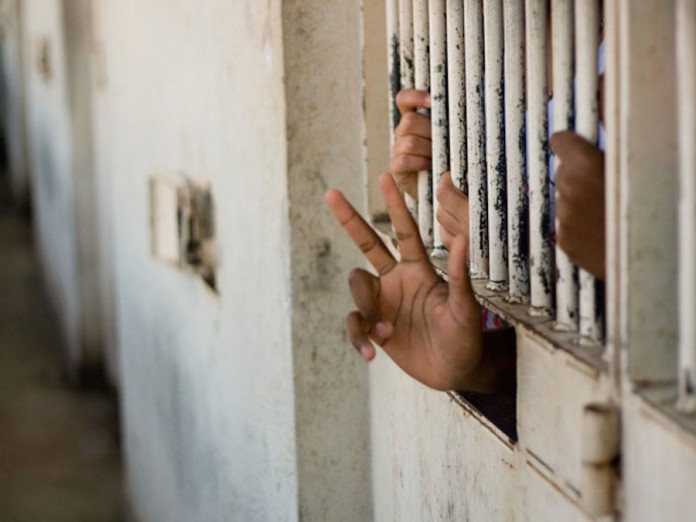
NOT for the first time, the nexus between prison congestion and the role of judges, who arbitrarily order the detention of defendants, has returned to national consciousness. Like his predecessors, the incumbent Chief Justice of Nigeria, Walter Onnoghen, reopened the prickly subject at the 2018 All Nigerian Judges’ Conference, warning judges against recklessly remanding suspects in prison custody. This message resonates with the public, who are at the receiving end of the consequences of horrible prison conditions.
For Onnoghen, judges can liberate the prison system from “the national embarrassment” it has become by being thorough in issuing remand orders. In an impassioned advocacy, the CJN warned the judges to stop clamping defendants into detention, especially in cases where the police lack concrete evidence to sustain criminal charges. “Reckless remand orders must not be issued … where your courts do not possess the requisite jurisdiction to entertain such matter,” Onnoghen stated.
Although there are other factors, this culture is at the heart of the prison congestion debacle. In this, judges do the bidding of the police, who haul suspects to court without having done proper investigations. Thus, the prisons are filled with people who may have been arrested without justification.
Past efforts to untangle the justice dispensation system and make it work efficiently have failed. As of November 12, there was a total prison inmate population of 75,544, according to the Nigerian Prisons Service. Of this, only 24,403 (or 32 per cent) were convicts. Disproportionately, 51,141 or 68 per cent were Awaiting Trial Persons. It is partly through these reckless remand orders that the prisons are overcrowded.
When assessed individually, the rot in the prison system is scandalous. The Owerri Federal Prisons in Imo State, which was built to shelter 548 inmates, currently harbours 2,253, 411 per cent in excess. Living conditions there – as in all the other jails countrywide – are nasty, abhorrent and dehumanising. A female cell there – meant for 13 inmates – had 83 in August.
A 2017 report by the National Bureau of Statistics corroborated the mess. The prisons in Lagos State, whose total capacity is for 3,927, harboured 7,396 as of 2016. Similarly, the prisons in Kano State, constructed for 2,116 inmates, had 4,183. Rivers State prisons contained 4,424 instead of 1,354 inmates. Some are locked up unduly because they cannot afford the legal fees required to process their bail documents or their fines. This is unthinkable.
Some ATPs, including minors, languish in detention because of the indiscriminate arrests by the police over petty misdemeanours. In March 2016, Women in Clergy (an NGO), decried the shocking conditions in Suleja Prisons in Niger State, during a visit by its members to facilitate the release of detainees who could not afford to pay their fines. There, the NGO unravelled the pathetic case of an eight-month-old baby who was locked up with her incarcerated mother.
On the other side, police cells are equally swarming with inmates, some of who find themselves there for minor infractions. Defendants clog the cells because they are often denied bail and not put on trial at the appropriate time because of the slow turning wheels of justice. It is why Onnoghen harped on the effective use of remand orders and the need for judges to stop police abuses.
However, there are several pragmatic options to decongest the prisons. The CJN should institute a national framework for the sustenance of periodic visits by heads of courts and state attorneys-general to the prisons and police cells within their jurisdictions. These frequent assessment visits will facilitate the freedom of inmates who have been unjustly detained. The CJN should promptly sanction judges who flout the directive to stop issuing reckless remand orders.
This newspaper has advocated that all sentences should not be custodial. Convicts, particularly first offenders, could undergo community service. This is practised in Europe. In Germany, convicts who show good behaviour are allowed to work in the daytime before returning to the prison at night. They are granted early release if they show consistently good behaviour.
With a government report that 80 of its 117 jails are overcrowded and understaffed, Britain’s Ministry of Justice, in 2017, said it would invest £1.3 billion to modernise the system and construct larger prisons. Having discovered that overcrowding in its prisons stemmed from those on trial, Senegal’s Ministry of Justice has just introduced the electronic tag bracelet system to curb it. Instead of worsening the inhuman conditions in the prisons, these bracelets, which go into operation in 2019, will allow the authorities to monitor them.
Nigeria should also design new methods to combat the disgraceful sore of overcrowded prison cells. Children should not be incarcerated with their mothers anymore. While it is imperative to modernise the prisons, having been built decades ago, it is also critical to make the prison system reformatory. “To beat prison overcrowding you need to say we’re jailing too many people,” says British NGO, Howard League for Penal Reform. “We need to look at sentencing; we need to look at how people can earn their release once they are in prison.”
Currently, prison is the 48th item on the Exclusive Legislative List in the 1999 Constitution. This should not be so. To make them leaner, better and safer, there should be devolution of the prison system in which they will be decentralised to enable the federal, state and local governments operate their own penal arrangements.
END

Be the first to comment